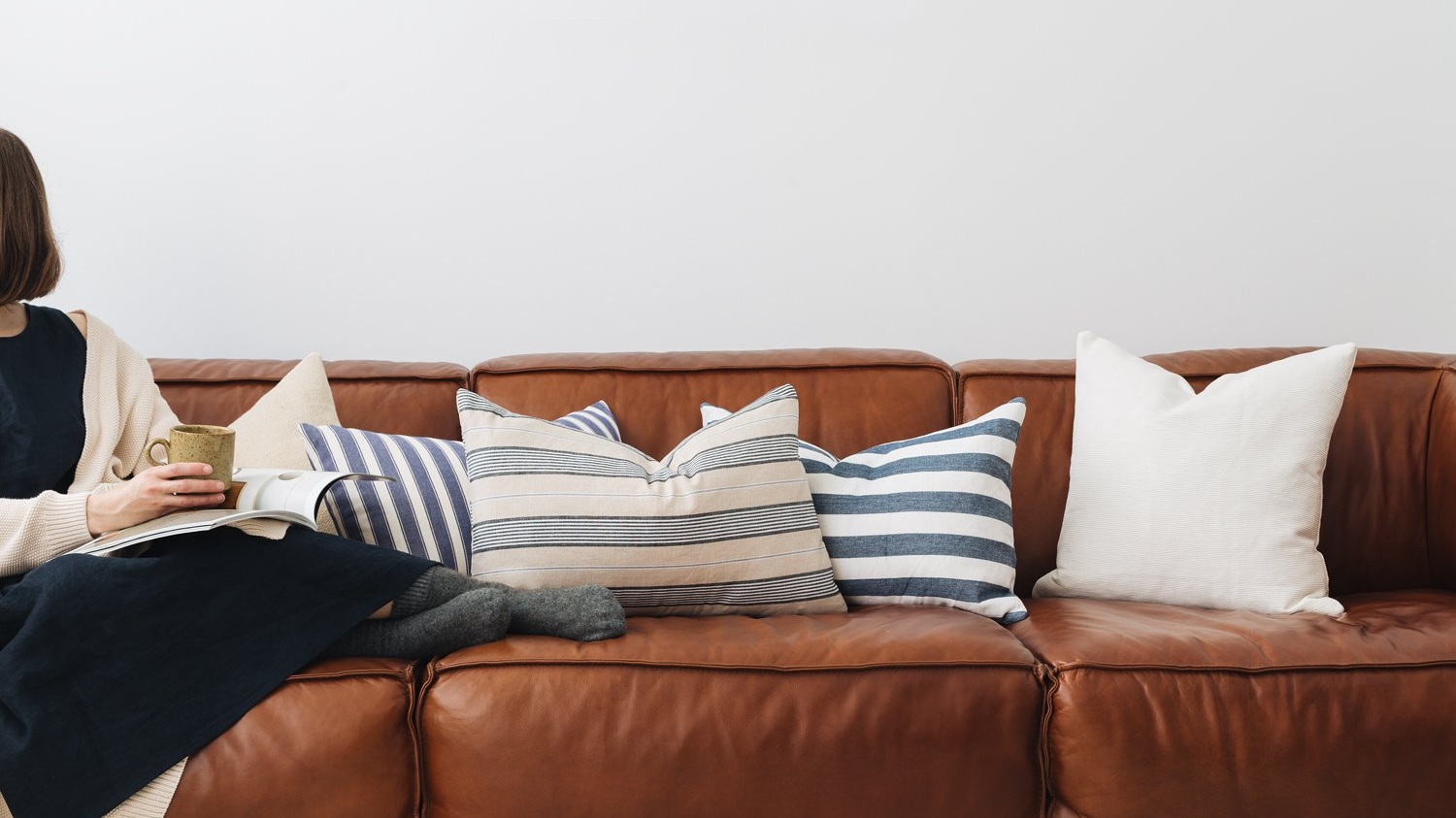Why is ethical fashion more important than ethical interiors?
I first wrote this post the day that Tearfund published its Ethical Fashion Guide in 2017. I’ve decided to update it and showcase it here as it helps to sum up what The Ethical Home Edit is about.
Rating fashion brands to improve transparency
For those of you who haven’t come across the Ethical Fashion Guide, it's great.
It rates New Zealand fashion retailers on the ethical practices in their supply chains to give consumers a chance to vote with their wallets and support brands that take things like human rights seriously over those that don't.
But, while I am fully supportive of this guide, and of ethical fashion in general, despite looking around online, I can't find any equivalent for home decor or furniture stores and products. WTF?
Don't get me wrong, there are snippets here and there online about ethical interiors.
On my previous blog, I wrote about ethical interiors stores in the UK and around the world, and there are a smattering of one-off articles and blog posts online relating to shopping for ethical interiors. Sometimes you’ll find a post or two on ethical bedlinen on sustainable fashion wesbites.
But where is the definitive guide to help us wade through the maze of interior products and shops on the high street?
If exploitation and poor working conditions are still rife in textile production for fashion, you can bet it's just as dodgy when those fabrics are turned into cushions, throws and rugs.
And I think we deserve the right to know, and be told, more. Don't you?
We could rate homewares brands in the same way
The rating system in the ethical fashion guide assesses companies in the following areas:
Worker Empowerment - Does the company pay a living wage, promote unions, use collective bargaining agreements and have grievance mechanisms?
Auditing - Does the company audit their suppliers’ factories, conduct unannounced visits and worker interviews, and publicise audit reports?
Knowing suppliers - To what degree does the brand trace its supply chain, monitor subcontracting, and how transparent is it?
Policies - Does the brand have a code of conduct that governs human rights standards in their supply chain?
All of these questions should be straightforward for homewares and interiors brands to answer too.
It doesn't seem like much to ask of the companies we spend our hard-earned money on does it?
This kind of approach creates change
Perhaps most fundamentally, this kind of guide seems to make a difference. Tearfund have found that since it started publishing its ethical fashion report in Australia in 2013 (in the wake of the 2013 Rana Plaza factory collapse in Bangladesh, which killed 1134 garment workers) companies have responded positively by reducing exploitation in their supply chains. Win!
The report's authors are aiming to offer a practical tool to help in reducing worker exploitation and alleviating poverty within the Asia-Pacific region.
"Too many garment factory workers in the developing world work long hours in oppressive conditions to make the clothes we wear.
The low pay they receive traps them and their families in a cycle of poverty, and that's quite frankly unacceptable."
This statement applies at the fabric production level too, which is why it's key that companies start taking these kind of issues more seriously at all levels in their supply chains.
Whether its skirts or cushions, I certainly want to know more about what I buy to ensure that someone hasn't been exploited during the process.
I don't consider that the majority of our high street interiors stores are doing enough to inform us about their textile and furniture supply chains. Or, more importantly, that they’re doing enough to improve how they source and produce the products they sell.
That's one of the reasons I’ve started The Ethical Home Edit. There shouldn't be a trade-off between ethics and aesthetics.
Choose Ethical
New Zealand ethical gifts and homewares brand, Etico, has published their own version of the Trainspotting monologue to outline their commitment to ethics and it's a motto that I’d love to see more home interiors brands put into practice. It's how all shopping - interiors or otherwise - should be!
“Choose Ethical. Choose fair pay. Choose creating opportunities. Choose empowerment.
Choose preserving traditional skills, choose handmade, cultural preservation, education and social development.
Choose non-discrimination, equality, and respect. Choose not to condone child labour. Choose safe working environments. Choose justice.
Choose sustainability and better environmental practices. Choose to fill your home with things that are made to last, from natural materials, using traditional methods. Choose timeless design and not media promoted ‘on trend’ designs that will be out of fashion in a year. Choose future heirlooms.
Choose not to buy cheap mass produced imports that will eventually end up in our landfills. Choose to be eclectic, and individual, and well made items that you will love forever.
Choose our future.
Choose Ethical.”
Can I get a 'hell yeah"?
There isn't a style compromise anymore when it comes to ethical fashion, and there doesn't need to be one when it comes to homewares either.
We can, and should, demand both style and ethics for our homewares. Let's do this!
Check out my reviews of mainstream homewares brands and their ethical and sustainable counterparts here.
How much do you feel you know about ethical interiors? More work to be done by high street brands or am I missing a magic bullet guide out there on the interweb? Let me know in the comments below. I'd love to hear your ideas for growing awareness of this important issue.




